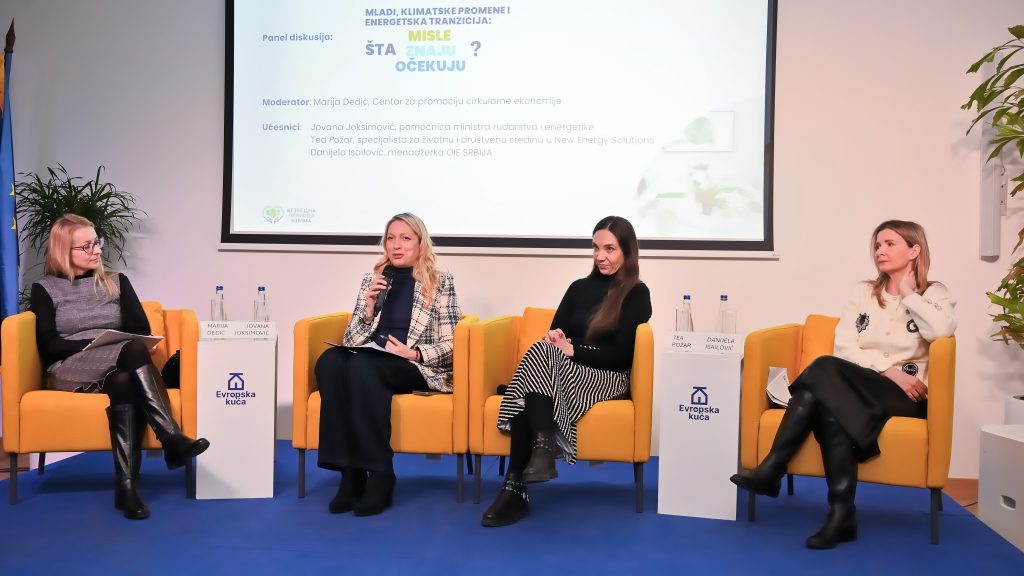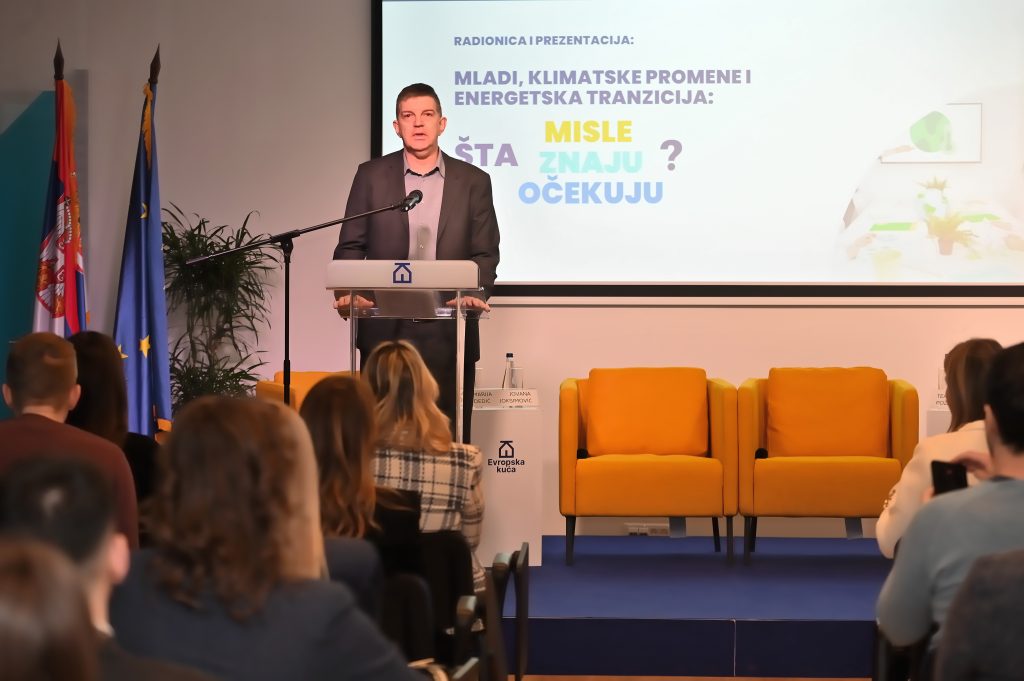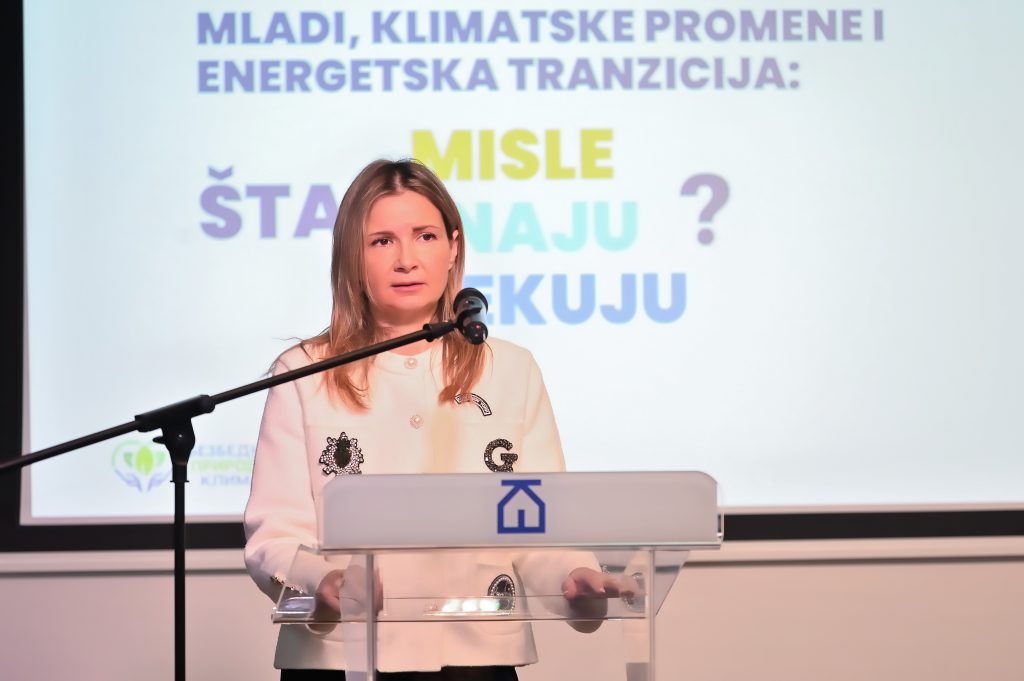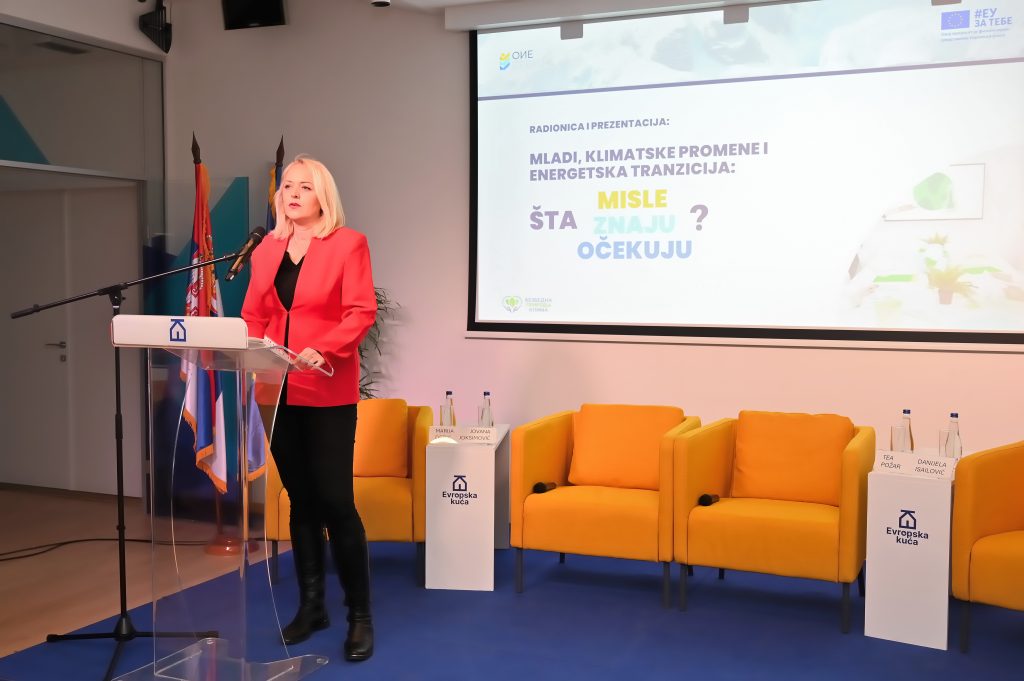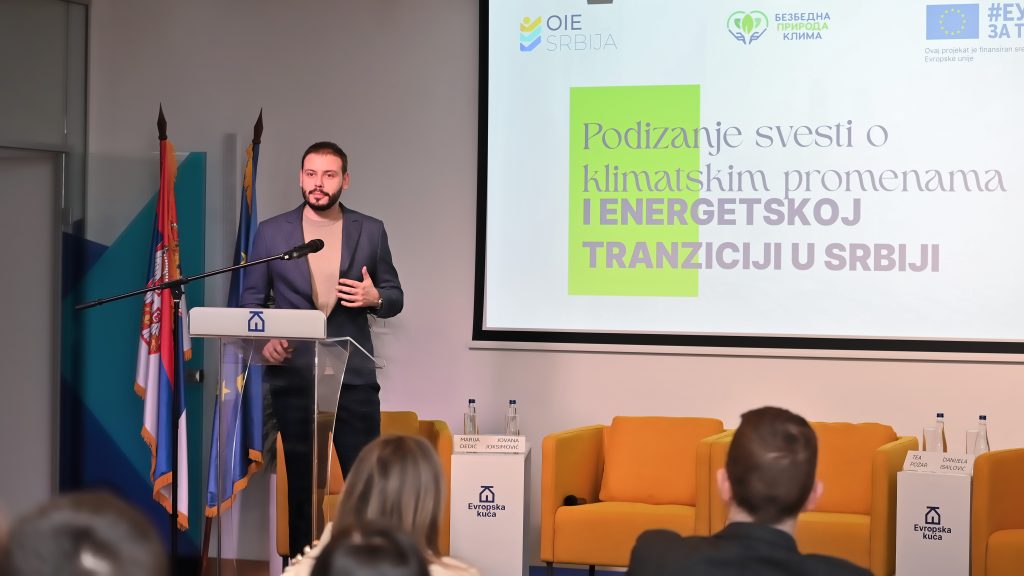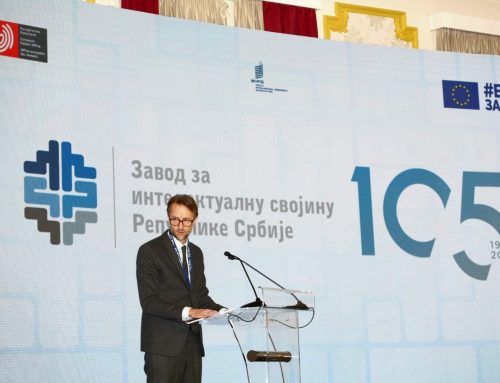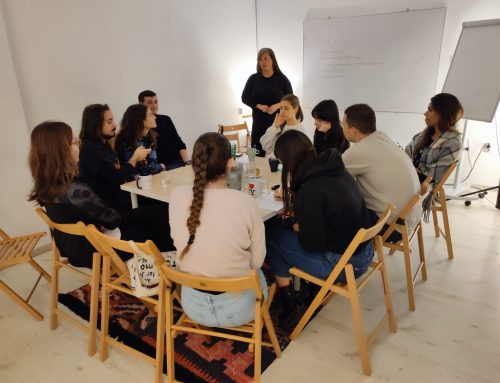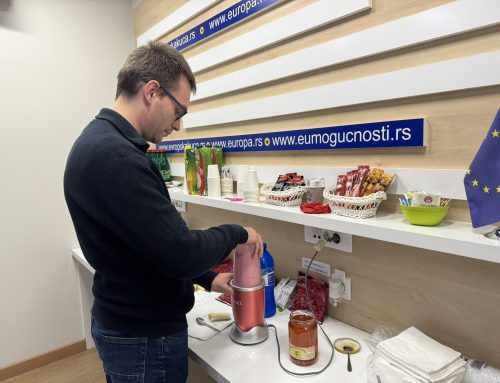Young people are increasingly aware of the impact of climate change, which, they emphasize, directly affects their daily lives. When it comes to the green transition, their first association is solar energy, with 52% citing social media and online portals as their primary sources of information, while traditional media, such as television and print, are less represented among young people.
According to research presented by Nenad Spasojević from the Center for Policy and Strategy Creation at the event “Youth, Climate Change, and Energy Transition” at the Europe House in Belgrade, 69% of young people believe that fossil fuels are one of the main sources and causes of environmental pollution.
Danijela Isailović, Manager of the RES Serbia Association, emphasized that public opinion has significantly progressed in recent years, and that educating young people through workshops and information campaigns has helped change attitudes. She also mentioned that Serbia has great potential in the field of sustainable energy sources but requires more investment in this sector.
Gligo Vuković, project manager at the EU Delegation in Serbia, highlighted that the key words of today’s event are youth, their knowledge, opinions, and expectations. He stressed the importance of involving young people in processes that shape the country’s future, with a special focus on climate change and sustainable energy transition.
Young people must be informed and educated in order to make informed decisions about education that will prepare them for new challenges, including the energy transition. The better they understand climate change and the transition, the greater the chance they will have to get involved in projects and innovations that enable sustainable development, Vuković added, reminding that the European Union is investing significant funds in Serbia to support green projects, contributing to energy efficiency improvements.
“I am glad that we are here today at the Europe House, listening to the positive results of the research conducted by the RES Serbia Association, with which the Ministry has been cooperating well for years. The Ministry is working intensively on the energy transition, implementing significant projects like auctions that will bring hundreds of new green megawatts to the grid, as well as other projects, such as 1 GW of solar power plants, the Kostolac wind farm, the Bistrica hydroelectric plant, and others. Since we see that young people mostly get their information via social media, I encourage them to visit our website, follow our social media, write to us, and ask questions,” said Jovana Joksimović, Assistant Minister for International Cooperation and European Integration in the Ministry of Mining and Energy.
In addition to the Assistant Minister, the panel also featured Tea Požar, environmental specialist at New Energy Solutions, and Danijela Isailović, Manager of RES Serbia. The panel was moderated by Marija Dedić from the Center for the Promotion of Circular Economy.
During the panel, the participants discussed the importance of young people’s role in transitioning to renewable energy sources (RES) and their contribution to the fight against climate change. Jovana Joksimović, Assistant Minister for Mining and Energy, stated that the positive result of the research on young people’s views on the energy transition is encouraging, as it indicates growing awareness among young people about the importance of this process.
Tea Požar from New Energy Solutions shared experiences of working in countries like Germany and the Netherlands, where the energy transition has already progressed significantly, but emphasized that similar progress in Serbia will require further education and a change in cultural habits.
Panelists agreed that the energy transition presents an opportunity for young people to recognize new career opportunities in the RES sector, and Joksimović pointed out that millions of new jobs will be opened in Europe by 2030.
The panel concluded with the message that it is essential to continue informing and educating young people, who have recognized the importance of the green transition and are ready to contribute to sustainable development through their daily habits and future careers in the renewable energy sector.
The event “Youth, Climate Change, and Energy Transition: What Do They Really Think, Know, and Expect?” organized by RES Serbia on Friday, February 21, at the Europe House in Belgrade, included a workshop and presentation of research on young people’s attitudes toward climate change and energy transition, carried out within the “Raising Awareness on Climate Change and Green Transition” project as part of SAFE Nature and Climate 2022-2025.
The research also focused on the perception of renewable energy sources (RES) potential in Serbia. Solar systems dominate as the most promising source, while views on wind farms were divided, with a significant number of young people taking a neutral stance on their land-use impact. However, most young people have a positive outlook on the further development of RES, believing they offer numerous opportunities and are an inevitable future in the context of sustainable development.
The European Union is the biggest donor of the energy sector in Serbia, with investments exceeding EUR 1 billion in grant funds since 2000. The EU is funding projects in Serbia that aim at security of supply, diversification of energy sources, market liberalization and improved energy efficiency.
More on EU-Serbia Cooperation in the Energy Sector:


